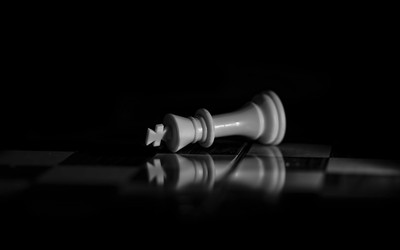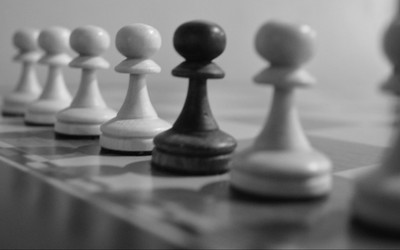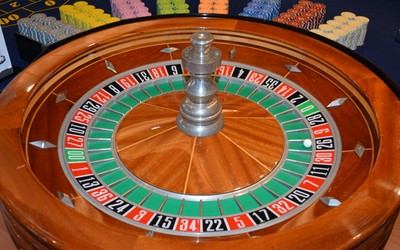
Leti Kugler
Prayer for Peace
Peace begins in the parking lot.Today marks the most solemn feast day of the Catholic liturgical calendar: Good Friday. It is a day of remembrance, veneration, and even celebration.
Every year I hear the same sermon, I see the same ritual, and I hear the same music. There is something peaceful to it, and something sinister. I won't ask GPT-4 to generate a Catholic Good Friday sermon, nor is there any need for you to consider doing such a thing. Every year throughout the year it is observed that young people are leaving the church, and every year speculation is offered as to why. Never is there offered a chance at fair debate between heretics and the conscientious (those who have a conscience); centuries ago Martin Luther sought reform, and even today his observations fall on deaf ears. Fear not; there remains hope for a tenuous peace and a joyful Easter.
We are taught not to judge, lest we be judged; but prejudice is immature and irresponsible. Walk the road together, that we may learn from one another. Endure the sermon and the ritual, that it may be rebuked once more... Scathing as my criticisms of the magisterium are, there are good lay people, and the church does effect some good in the world. Reality is not black and white, even in a universe where congregants are simultaneously taught what to think yet are encouraged not to think too deeply. Even in that universe, much good can still occur if one believes people are fundamentally good.
Every religious tradition has its rituals, and Catholicism is no exception. Hell, there are many writings about cathechesis: how best to practice the rituals. Does the church follow its own advice? Who am I to judge? Well...
I am a musician. I understand that music sharpens or relaxes the mind, and music lifts or breaks the spirit. The Catholic church has some understanding of music, too... popes have spoken about the primacy of voice and organ music, and how other instruments -- piano, guitar, cymbal, etc. -- have no place in the liturgy, although post-Vatican II this is understood to be a local decision.
Decisions matter; while I find contemporary Christian music simple and pathetic, Catholic service music is one minuscule step more challenging and thought-provoking. Decisions are not simple, and perhaps not every church can afford an organ or even a keyboard. But churches which can afford such really, really, really ought to dispense with guitars, percussion, etc. altogether (forgetting for a minute that piano is a percussion instrument and there is a dearth of organists) if they wish to teach and to learn. It's true that church services are no longer exclusively said in Latin and times have changed, and times will change again... reform takes time, patience, and introspection.
I am a scientist/philosopher of sorts. We are taught not to judge, yet many homilies hastily appropriate terms from science, art, etc. in similar manner to how a used car salesman might quick-talk some fancy language to bolster their credibility. Admittedly a homily isn't a classroom and there's never time to fully cover concepts, but isn't that by design? Regardless, on Good Friday some homilists will think it clever to mention how contemporary discoveries about human anatomy parallel things which appear in scripture... things we *assume* people centuries ago could not have known about, and therefore a literal interpretation of scripture is the definitive, correct interpretation. What an impoverished, unscientific mode of thought... a thought from those who wear fancy outfits and practice other modes of idolatry.
I'm attempting to say as politely as possible that Catholic church reform can still occur, if the gaslighting can stop. Stop saying that "young people are saying science and faith are incompatible" while also peddling pseudoscience and pseudo-philosophy; be mature enough to concede that we all are human and we all are fallible, and historic, scientific, or philosophical truth requires verification from credible experts. You wouldn't trust a scientist to run your church, so why would you trust a clergyman without a background in science to talk about science? How can all truths originate from one source?
Again, there is hope for a tenuous peace; just because a church is fundamentally flawed doesn't mean its members are. Churches have contributed to many local and international charity efforts, both to spread religion and to do the good works and deeds our god (and our government granting tax-exempt status in return for "neutrality" on political matters!) may wish us to do. Over years, decades, centuries, and perhaps longer we may eventually come to an understanding about how churches can help reform we the people, raising standards for education and the like... at a bare minimum, statistics should be required at a high school grade level, so voters can understand issues being voted upon (how voters are fleeced). Education about music would be great too, as it has a divine power to unite people and to divide them.
https://youtu.be/fCNvZqpa-7Q
https://youtu.be/yUUcfycpVW8
Stephen Colbert once joked:
"There's a saying about those who don't learn from history. I don't remember it, but it's good."
One pastor brilliantly reminded us at the end of mass:
"Peace begins in the parking lot."
Have a solemn Good Friday and a joyous Easter!
Image credit: Leti Kugler




